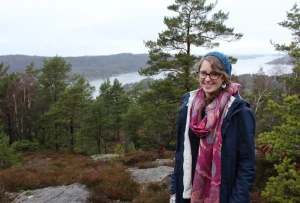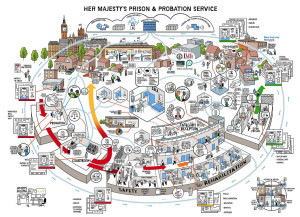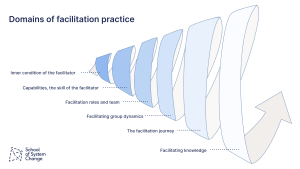Dr. Narges Baniasadi shares her experience of participating in the School of System Change’s Basecamp course in 2020, and tells us how she’s using what she learned to impact the entrepreneurship system.
My journey from disillusionment and burnout to the School, and my new plans to shift the system of entrepreneurship
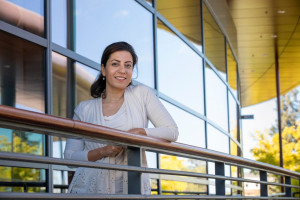
“Another world is not only possible, she is on her way. On a quiet day, I can hear her breathing.”
— Arundhati Roy
My background
I grew up in Iran and migrated to the US to pursue my PhD Studies in Computational Biology at Stanford University. This led me to start a company in the field of DNA Sequencing, which we eventually sold to Roche pharmaceuticals, where I stayed on to serve as an executive for a few years.
In 2017 I lost my mother, we got a new administration in the US, and the societal and environmental challenges we are dealing with reached new levels of crises. So in 2018 I decided to leave my comfortable position and job in Silicon Valley and started travelling around the world grappling with questions about my life and work and searching for ways to heal myself and the world around me. I worked with many entrepreneurs and research universities, and eventually a series of life events and burnout forced me to slow down and look deeper into my life and my work.
My School experience
I first learned about the School of System Change from friends in London. I knew that my aspiration was to change the system, specifically the system that I had lived through: the system of innovation and entrepreneurship. Having spent years in academia, startups and corporations, I was deeply unsatisfied with our systems of innovation that reward profits, fame and growth over positive impact on the lives of people and our living planet.
I came to the School of System Change with an expectation: that I am going to learn some intellectual tools to map and diagnose systemic problems. I also came with two questions in my mind, one about my personal life (how to achieve work/life balance) and one about the impact of my work (how to shift innovation systems to be more equitable and sustainable). To my surprise, I learned that system change work is more a practice of heart than an intellectual exercise (though it certainly includes a lot of analysis and learning too). I also found out the answer to both of my questions is the same!
The School experience was nothing short of transformational and I highly recommend it to any leader who is seeking to understand the impact of their work on bigger systems in society. The teachings were humbling and liberating at the same time. It debunked the myth of the hero and the glorification of the solo entrepreneur. I learned that system change is about collaboration more than anything else; that we can only move at the speed of the trust in a system and the power of a change-maker is defined by the power of their relationships. I also learned that change starts within. Understanding ourselves, our pains, our association with power structures in society and our deepest values and intentions are the very first steps to gain clarity and motivation on our systems change journey. Our healing is interwoven with the healing of the world. We need to muster both the courage and the vulnerability to show up in our whole selves and build the authentic relationships that lay the foundations for systems change work. At the end of the day, we are the system. And the system changes when we all see and show up differently.
That’s not to say the intellectual tools are not useful. The frameworks of systems change we learnt about, such as panarchy, the Multi-Level Perspective, the Three Horizons and more, makes the overwhelming and complicated task of tackling systems more approachable, and it helps us cultivate the perspective and patience we need for a journey that might take longer than our lifetime!
I was also very encouraged and touched by the community of other participants in the School. To my surprise, I was the only person attending from the “for-profit” sector in our cohort and everyone else was deeply rooted in NGO work, facilitation and activism. I learned a lot from this community and I was humbled to learn how much this vocabulary and depth of system change understanding is absent in the world of science and technology, where I came from. I got even more motivated to change that!
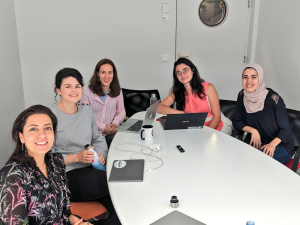
What I’m doing now
I realized that while philanthropy, advocacy and social entrepreneurship all have a role to play, they mostly operate on the fringes of society. We need to go further and reform the mainstream economics engine of our society if we are serious about systemic change. Today, our economic system is rewarding activities that perpetuate the patterns that damage our environment and grow inequalities in our societies.
My theory of change starts with startups: with planting the seeds of change for an equitable and sustainable future in our future businesses.
Today, the majority of entrepreneurs go after a product-market fit heavily influenced by what investors are willing to back and the possibilities of emerging technologies. We can imagine a world where entrepreneurs and investors optimize their work for product-impact fit while still finding profitable operating models. For example, in the healthcare industry most of the investments today go to therapeutics that address the diseases of old age such as cancer. In contrast, the Social and Environmental Determinants of health or preventive healthcare which determine more than 80% of our health receives very little capital and attention. Another area with huge potential for improvement is how our businesses are being built, governed and financed today and how the benefits of technology development and commercial activities are distributed between founders, investors, employees and communities to achieve a more equitable future.
The younger generation are seeking meaningful work more than ever before and will be one of the main drivers of this change. Startups are a playground for experimentation which are not restricted by the bureaucracies of large corporations. We can imagine and explore new products, services, business models and financial plans that put the collective wellbeing ahead of short term profits. By inspiring, educating and equipping the next generation leaders in the ‘Why, What, and How’ of purposeful entrepreneurship, we can develop the next generation of businesses that are stewards of people and planet.
On my return to California, I’ve been able to hold my disillusionment with the techno-fix culture with an appreciation for what Silicon Valley culture can offer - namely thinking big, enthusiasm for experimentation, and a positivity bordering naivety for our ability to change the world!
I’m now working to integrate systems thinking into the business and entrepreneurship programmes of top colleges in the US. More specifically, I have been working closely with MIT Solve to develop educational content, resources, and a network for Purposeful Entrepreneurship. I have also recently joined Stanford University BioEngineering department to launch a new program focused on translational research and purposeful entrepreneurship to address problems in the health of our Planet and Society. Stay tuned for more to come on this!
Changing our business world is a big challenge but I feel the intention for this change exists in many pockets of innovation all around us today! My goal is to build a global network of changemakers in universities and entrepreneurship hubs to drive this change. Will you join me?
About the Author
Dr. Narges Baniasadi has led multiple initiatives and businesses in the intersection of Technology and Life Sciences for more than a decade. She founded Bina, a pioneering Bioinformatics company, out of a decade of research at Stanford and UC Berkeley. Bina developed high performance computing platforms and AI solutions for cancer research and genomics analysis. Later, upon acquisition of Bina by Roche, she led the clinical software development and AI research as VP of Informatics at Roche Sequencing. Currently Dr. Baniasadi is working with multiple Universities and entrepreneurial platforms across the globe to support mission driven businesses.



